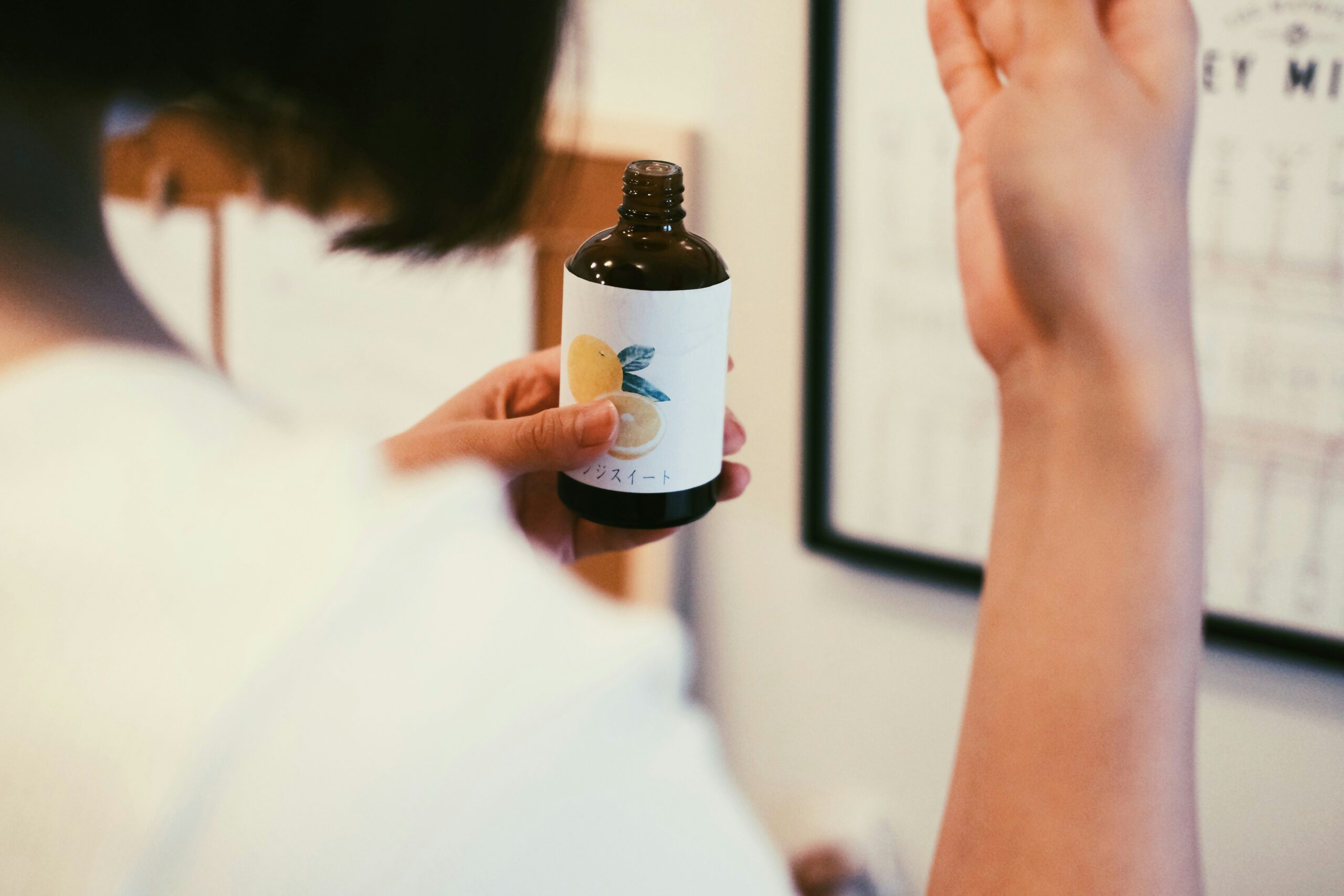Introduction to Bath Oils
Bath oils are luxurious liquid products designed to be added to bathwater, creating a soothing and aromatic experience. These oils are typically derived from natural plant sources, including essential oils, carrier oils, and herbal extracts, contributing to both the sensory pleasures and skin nourishment during a bath. The historical significance of bath oils can be traced back to ancient civilizations, where people used various oils and herbs to elevate their bathing rituals. In cultures such as the Egyptians and Romans, fragrant oils were not only used for cleansing but also for aesthetic and therapeutic purposes, enhancing overall well-being.
In modern wellness practices, bath oils have regained immense popularity due to their multiple benefits. As the world continues to embrace holistic health and self-care routines, bath oils stand out for their ability to transform an ordinary bath into a sensual retreat. By adding a few drops of bath oil to warm water, individuals can create an environment conducive to relaxation and tranquility. The warm water synergizes with the oil, allowing for better absorption by the skin, ultimately resulting in hydration and nourishing effects that can help alleviate dryness and irritation.
Moreover, specific essential oils are known for their therapeutic properties, such as lavender, which is often associated with calming effects, making it an ideal choice for those seeking stress relief. Similarly, eucalyptus oil may invigorate the senses and promote respiratory health. The diverse range of available bath oils caters to different preferences and needs, allowing each individual to customize their bathing experience. Overall, integrating bath oils into a wellness routine not only enhances the enjoyment of bathing but also plays a significant role in supporting emotional and physical health.
Benefits of Using Bath Oils
Bath oils have garnered considerable attention in wellness routines due to their myriad benefits. One of the primary advantages of using bath oils is skin hydration. Many bath oils are formulated with nourishing ingredients such as jojoba oil, almond oil, or coconut oil, which are well-known for their emollient properties. These oils penetrate the skin, creating a barrier that locks in moisture. Regular use can lead to softer, smoother skin, making it a beneficial addition to any skincare regimen.
Another significant benefit of bath oils is their ability to promote muscle relaxation. Soaking in warm water infused with bath oils can help alleviate tension in the muscles, making it an excellent option after a long day or strenuous workout. The heat from the water combined with the relaxing properties of oils like eucalyptus or lavender can help ease soreness and promote recovery.
Furthermore, bath oils can serve as a vital tool for stress relief. The act of taking a bath itself is often a calming experience; however, adding bath oils enhances this effect. Essential oils such as chamomile and bergamot have been shown to reduce anxiety and promote a sense of well-being when inhaled. The aroma therapy benefits gained from inhaling these scents during a bath can help individuals unwind and find tranquility.
Apart from these benefits, bath oils also provide an opportunity for self-care. The ritual of applying bath oils allows individuals to take a moment to focus on themselves, promoting mindfulness and relaxation. Overall, bath oils offer a multifaceted approach to enhancing physical and mental well-being through hydration, relaxation, and aromatic benefits. Their integration into regular bathing rituals can lead to profound improvements in one’s overall quality of life.
Choosing the Right Bath Oil
When selecting the perfect bath oil, understanding your skin type is crucial. Different oils serve various purposes, and knowing your specific needs will enhance your bathing experience. For individuals with dry or sensitive skin, opting for moisturizing carrier oils like almond oil, jojoba oil, or coconut oil can provide essential hydration and nourishment. These oils are gentle, making them ideal for sensitive skin, while also promoting skin barrier repair.
Conversely, if you possess oily or combination skin, lighter oils such as grapeseed oil or hazelnut oil may be more suitable. These oils can help balance excess sebum while maintaining moisture levels, without causing clogged pores. Furthermore, incorporating essential oils into your bath can elevate the overall experience, targeting specific skin concerns. Essential oils, such as lavender for relaxation, tea tree for its antiseptic properties, and eucalyptus for invigorating effects, are popular choices.
Your personal preferences and desired effects also play a significant role. When looking for relaxation, oils with soothing scents, like chamomile or ylang-ylang, can help create a tranquil environment. For those seeking invigoration, citrus oils such as lemon or orange can uplift your mood and energize your spirit. Experimenting with various blends can help tailor a unique bath oil experience that aligns with your preferences.
In summary, choosing the right bath oil involves a combination of understanding your skin type, preferences, and desired outcomes. By selecting the appropriate carrier and essential oils, you can optimize your bathing ritual, promoting both skin health and relaxation. Investing time in this process will ultimately transform bath time into a rejuvenating experience tailored specifically to your needs.
How to Use Bath Oils Effectively
Using bath oils effectively can enhance your bathing experience, promoting relaxation and enhancing skin hydration. To begin with, it is crucial to choose the right amount of bath oil to use. Typically, a dosage of 5 to 10 drops of bath oil is sufficient for a standard-sized tub. However, the amount may vary depending on personal preference and the specific concentration of the oil. It is advisable to always start with the minimum recommended amount and adjust as needed for optimal enjoyment.
When adding bath oils to the tub, it is best to mix them into the running water rather than applying them directly to the skin. This ensures that the oils disperse evenly throughout the bathwater, allowing for a more uniform distribution of aroma and therapeutic benefits. You may also consider blending bath oils with a carrier oil, such as sweet almond or jojoba oil, before adding them to the bathwater. This helps to prevent skin irritation, providing an additional layer of nourishment for your skin.
In terms of best practices, creating a soothing atmosphere can enhance the overall experience. Dim the lights, light some candles, and consider playing soft music or nature sounds to promote relaxation. This ambiance, combined with your choice of bath oils, can turn a regular bath into a serene escape. Furthermore, it is essential to consider safety precautions when using bath oils. Test a small patch of skin before full application to ensure there are no allergic reactions. Pregnant individuals or those with specific medical conditions should consult with a health professional prior to using certain essential oils, as some may not be suitable during pregnancy or could interact with medications.
By following these practical guidelines, one can maximize the benefits of bath oils and transform their bathing routine into a rejuvenating ritual.
DIY Bath Oil Recipes
Creating your own bath oils can be a rewarding and enjoyable experience. Not only do homemade bath oils allow you to customize scents and properties to fit your needs, they also enable you to choose high-quality ingredients free from synthetic fragrances and additives. Below are a few recipes that cater to various preferences, whether you seek relaxation, rejuvenation, or skin nourishment.
Relaxing Lavender Bath Oil: To craft this soothing oil, mix 1 cup of almond oil with 20 drops of pure lavender essential oil. This blend is perfect for those looking to unwind after a long day. Lavender is well-known for its calming properties, creating a serene atmosphere that helps reduce stress and anxiety levels. Simply add a few tablespoons of this mixture to your warm bath for an aromatic experience.
Uplifting Citrus Bath Oil: For a refreshing and invigorating blend, combine 1 cup of jojoba oil with 15 drops of both sweet orange and lime essential oils. Citrus scents are often associated with revitalization and energy-boosting effects. This bath oil can provide a rejuvenating experience, perfect for early morning baths or whenever you need an energy boost during the day.
Nourishing Coconut and Rose Bath Oil: Mix 1 cup of coconut oil with 10 drops of rose essential oil for a deeply nourishing bath experience. Coconut oil is recognized for its excellent moisturizing properties, while rose oil adds a luxurious touch, improving skin’s texture and appearance. This recipe is ideal for individuals seeking to pamper themselves or maintain healthy skin during the colder months.
Feel free to experiment with other essential oils and carrier oils to create your unique bath oil blends that suit your sensory preferences and holistic needs.
Bath Oils for Special Occasions
Bath oils serve as a perfect addition to various special occasions, enhancing both the ambience and the overall experience. Whether indulging in a spa day at home, creating a romantic evening, or enjoying self-care rituals, the right bath oils can elevate these moments significantly. For spa days, essential oils such as eucalyptus, lavender, and chamomile not only provide soothing fragrances but also promote relaxation and stress relief. A few drops of eucalyptus oil in warm bath water clear airways and invigorate the senses, ideal for a rejuvenating spa experience.
When it comes to romantic evenings, the use of sensual and inviting scents can set the perfect mood. Ylang-ylang and jasmine are excellent choices, known for their aphrodisiac properties. Combining these oils with a carrier oil, such as sweet almond or jojoba, creates an irresistible bath oil blend that can lead to a memorable evening. Simply mix a few drops of ylang-ylang and jasmine with a carrier oil, pour it under running water, and enjoy a luxurious soak together.
Self-care rituals, focusing on mental health and well-being, can significantly benefit from bath oils as well. Incorporating oils like bergamot or frankincense into your bath can be emotionally uplifting and grounding. Bergamot’s citrusy aroma helps alleviate anxiety, making it a great choice following a long week or stressful day. A simple recipe for self-care is to blend five drops of bergamot oil with two tablespoons of carrier oil before adding it to your bath, inviting a calming atmosphere.
In essence, choosing the right bath oils tailored to the occasion can greatly enhance your experiences. From spa days to romantic nights and personal rituals, various oils and blends play a vital role in setting the desired mood and providing therapeutic benefits.
Storing and Preserving Bath Oils
The proper storage of bath oils is essential to ensure their longevity and effectiveness. Bath oils, often made from various natural ingredients, can deteriorate if exposed to unfavorable conditions. To maintain their quality, these oils should ideally be stored in a cool, dark place, such as a cabinet or a cloistered bathroom shelf, away from direct sunlight and heat sources. Excessive light and heat can break down the chemical composition of the oils, affecting their scent and therapeutic properties.
Choosing the right storage container also plays a vital role in preserving bath oils. Glass containers are preferable, as they do not react with the oils and prevent any chemical leaching that might occur with plastic. Amber or cobalt blue glass bottles are particularly effective because their color helps shield the oils from light. Ensure that the container is tightly sealed to protect the oils from air exposure, which can lead to oxidation and spoilage. Additionally, it is advisable to label containers with the date of production or opening to keep track of their shelf life.
The shelf life of bath oils can vary widely based on their ingredients. Generally, most bath oils can last anywhere from six months to two years. Essential oils tend to have a shorter shelf life, while carrier oils might last longer when properly stored. To identify if your bath oil has gone bad, look for any changes in color, consistency, or scent. A rancid smell or a clouded appearance indicates that the oil is no longer good for use. By adhering to these simple storage tips, you can significantly enhance the lifespan and effectiveness of your bath oils, ensuring a quality experience with every use.
Common Myths and Misconceptions about Bath Oils
Bath oils have garnered substantial attention in recent years, sparking dialogues encompassing their efficacy, usage, and potential drawbacks. However, various myths and misconceptions often cloud the understanding of bath oils, leading to hesitance in those considering their application. One of the most prevalent misconceptions is that bath oils cause skin reactions or irritation. While it is true that individuals with sensitive skin may experience adverse reactions, the majority of bath oils are formulated with skin-friendly ingredients. To mitigate potential issues, it is advisable to conduct a patch test prior to full application. Moreover, opting for high-quality, natural oils usually results in a nourishing effect rather than a damaging one.
Another common myth is that using bath oils leads to excessively oily skin or a slippery bath experience. While bath oils indeed add a layer of moisture, they are designed to be absorbed by the skin rather than sit on the surface. Therefore, individuals often find that after bathing, their skin feels hydrated and soft, rather than greasy. It is essential to select appropriate amounts and types of oils; for instance, lightweight oils are less likely to leave any residue.
Concerns about bath oils staining bathtubs or surfaces also circulate widely. This is largely a misconception, as most modern bathtubs can withstand a variety of oils. The key is to use oils sparingly and clean the tub afterward. If an oil does leave a residue, a quick wash with warm, soapy water usually suffices to remove it. In reality, bath oils can enhance the bathing experience without the fear of significant inconvenience. Understanding these myths can empower users to safely enjoy the benefits that bath oils can provide, influencing not only their bathing routine but also their overall wellness.
Conclusion: Embracing the Bath Experience
Throughout this guide, we have explored the myriad benefits and uses of bath oils, emphasizing their potential to transform a simple bathing experience into a holistic ritual for wellness. Bath oils, derived from various natural sources, not only enhance the sensory experience but also offer therapeutic properties that promote relaxation, hydrate the skin, and uplift the spirit. By integrating these oils into your routine, you are more than just enhancing your bath; you are participating in a self-care practice that honors your physical and emotional well-being.
The various recipes presented illustrate how easily bath oils can be personalized to cater to different preferences and needs. For instance, incorporating essential oils such as lavender or eucalyptus can provide calming or invigorating effects, respectively. The versatility of bath oils allows individuals to tailor their bathing experience to align with their mood or desired outcome, whether it’s reducing stress after a long day or invigorating the senses to energize for the day ahead. Additionally, regular use of bath oils can contribute to improved skin health, making them a beneficial addition to any skincare routine.
We encourage readers to embrace the bath experience fully. By consciously selecting and using bath oils, you can create a sanctuary of peace and rejuvenation in the comfort of your home. Consider setting aside time each week for a luxurious bath, allowing the oil to work its magic not only on your skin but also on your mental and emotional state. Ultimately, incorporating bath oils into your bathing ritual is more than a moment of indulgence; it is a powerful step toward nurturing oneself in a busy world. Allow yourself this time to unwind and reconnect with your inner self, for the benefits extend far beyond the bathtub.


